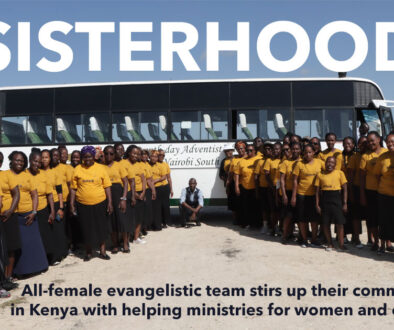Mizoram Adventists Expose Religious Discrimination
20 September 2024 |
Representatives of the Seventh-day Adventist Church in the state of Mizoram in northeastern India have taken action against internalized religious discriminatory policies imposed by their local government.
On May 7, 2024, staff members of Helen Lowry Adventist School and members of the Adventist Youth Federation, Aizawl West Circle, a youth organization associated with the Seventh-day Adventist Church—H Lalsangliana and Noel Lalchawilena—requested permission to use the 1st Bn. MAP Ground for a church youth sports event scheduled for June 16, 2024. However, though an officer of the 1MAP commandant at Armed Veng in Aizawl initially said they intended to accept the request, the permission for use was formally denied just two days before the event, leaving the school scrambling to find a replacement.
This is not an isolated incident. For Adventist citizens of a predominantly Christian Mizoram, such discrimination is a common occurrence due to their existence as a minority religion. As cited in an article recounting their position:
“According to the Economics and Statistics Handbook 2022, the Seventh Day Adventist community, which comprises 18,979 members across ten listed churches, makes up only 1.65% of the total population of the ten churches, which is 1,148,766.”
Many Saturday worshipers have had their businesses placed in jeopardy, their right to worship challenged, and their education put at risk due to the refusal to move crucial public and professional events from Saturday to Sunday. One example is the vendors and shop owners whose livelihoods depend on access to market days, who are prevented from opening their booths on Sunday, only allowing access and traffic on Saturday markets.
Lalmuansanga Khiangte, associate director of the Communications Department in the Mizo Conference of Seventh-day Adventists, and Zairemthanga, a church member, filed two Right To Information (RTI) queries with the Mizoram Sports and Youth Services Directorate on June 29 and September 7, 2024, to understand what policies or legislation prevented the government from allowing public properties to be used on Sunday.
The Sports and Youth Services Directorate responded to the first RTI query by saying Sunday is a holiday and is therefore impossible to allow access to government halls or fields on that day. The second RTI query questioned why events on Saturday, also considered a government holiday, are regularly permitted to use government property. Government officials failed to explain the inconsistency.
“When asked under what law this restriction was imposed, the official’s response merely reiterated that Sunday is a holiday. Khiangte also sought clarity on whether previous permissions had been revoked, to which the government denied any cancellations.”
This kind of religious bias against Saturday worshipers has run rampant among minority denominations such as Seventh-day Adventism and the Church of the Seventh-day, which has endangered the livelihood and community freedoms of many.




